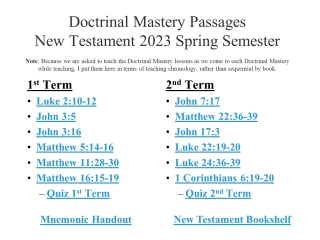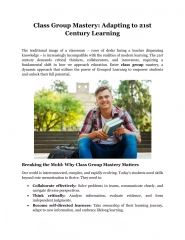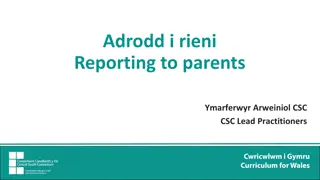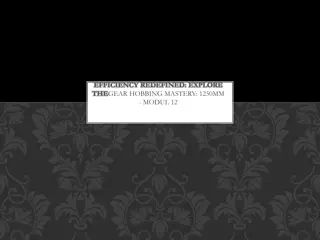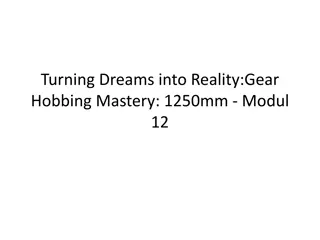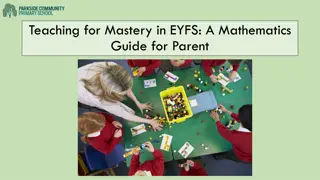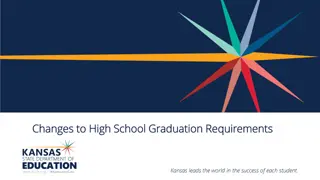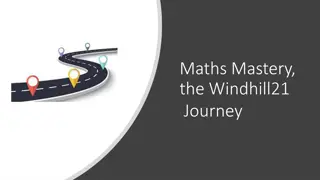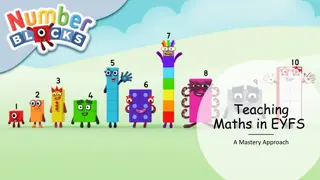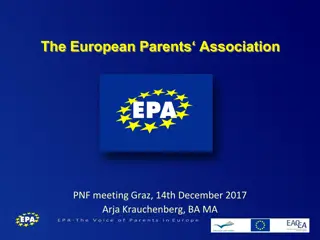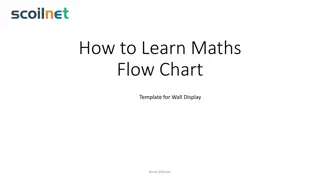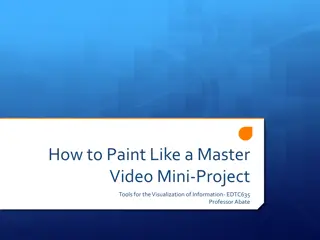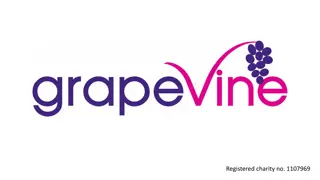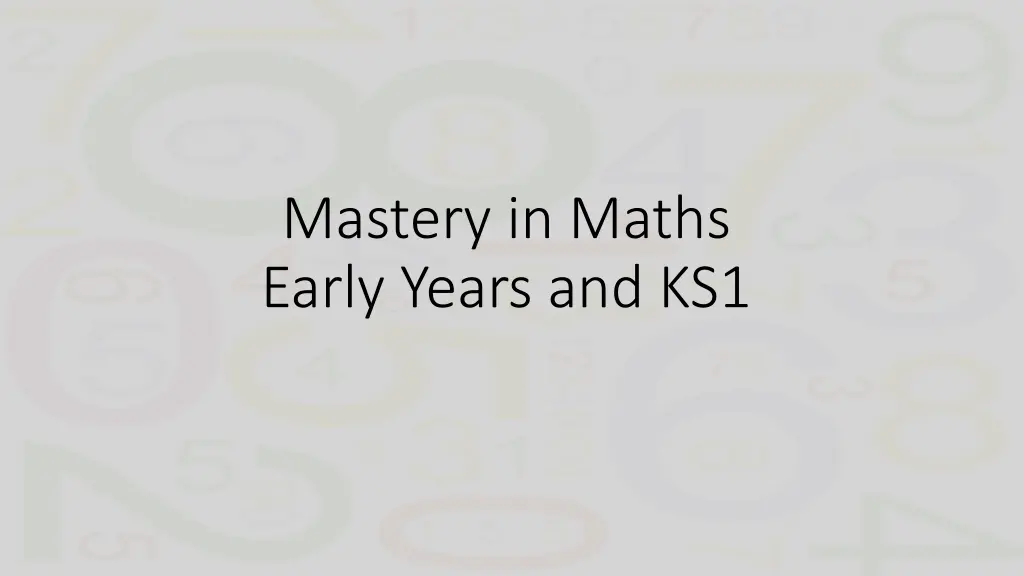
Mastering Maths: Curriculum, Mastery, and Application
Explore the foundations of Maths mastery in Early Years and KS1, focusing on Curriculum guidelines, Mastery principles, and application through the CPA approach. Enhance math skills with manipulatives and problem-solving, aligned with the aims of the National Curriculum for Mathematical fluency and conceptual understanding.
Download Presentation

Please find below an Image/Link to download the presentation.
The content on the website is provided AS IS for your information and personal use only. It may not be sold, licensed, or shared on other websites without obtaining consent from the author. If you encounter any issues during the download, it is possible that the publisher has removed the file from their server.
You are allowed to download the files provided on this website for personal or commercial use, subject to the condition that they are used lawfully. All files are the property of their respective owners.
The content on the website is provided AS IS for your information and personal use only. It may not be sold, licensed, or shared on other websites without obtaining consent from the author.
E N D
Presentation Transcript
Mastery in Maths Early Years and KS1
Aims: To know what the Curriculum says about Maths To look at what Mastery means and what underpins it To know the CPA approach To use some manipulatives To do some maths!
Lets do some Maths! In partners, use the Numicon to make number bonds to 10. Image result for numicon Can you fill the whole board without leaving a gap? What patterns can you see?
Aims of the National Curriculum Reason Mathematically Fluency and Conceptual Understanding Using and Applying/problem Solving in Context
What the curriculum says The national curriculum for mathematics aims to ensure that all pupils: become fluent in the fundamentals of mathematics, including through varied and frequent practice with increasingly complex problems over time, so that pupils develop conceptual understanding and the ability to recall and apply knowledge rapidly and accurately. reason mathematically by following a line of enquiry, conjecturing relationships and generalisations, and developing an argument, justification or proof using mathematical language can solve problems by applying their mathematics to a variety of routine and non- routine problems with increasing sophistication, including breaking down problems into a series of simpler steps and persevering in seeking solutions.
Signature Bake - Fluency I know how to do it (operations and their relationships) It becomes automatic and I don t need to think about it to make a cake I need to add flour, eggs, sugar and butter (mental arithmetic) I m really good at doing it (speed) I can show someone else how to do it (understanding)
Variation in Fluency 5 + 1 = 15 + 2 = 22 + 63 = 5 + ? = 6 ? + 2 = 17 ? = 22 + 63 20 ? = 5
Technical Challenge - Reasoning Deep and sustainable learning The ability to build on something that has already been sufficiently mastered The ability to reason about a concept and make connections Conceptual understanding (comprehension of mathematical concepts, operations and relations) and procedural fluency (ability to formulate, represent and solve mathematical problems. Reasoning is the glue that helps mathematics make sense.
How do we help children to communicate their reasoning? I am going to count to 20. I think this because If this is true then I know that the next one is .. because This can t work because When I tried .I noticed that The pattern looks like All the numbers begin with I start at 8. Will I say 11? Convince me. Spot the mistake: 19, 18, 16, 15, 14 What is wrong with this sequence of numbers? I count backwards from 20 How many steps does it take me to get to 7?
Show Stopper Problem Solving Sophie went to the shop and brought 5 bananas and 6 apples. How many pieces of fruit did she buy altogether? Altogether Sophie and Ethan have 13 apples. Sophie has 6 apples. How many has Ethan got? Sophie and Ethan have 20 apples. They both have an even amount each? How many could they have? 5 + 6 = ? 6 + ? = 13 ? + ? = 20
Sowhat strategies and manipulatives help children achieve mastery?
Concrete Pictorial Abstract 3 + 1 = 4 Concrete or pictorial representations support children to understand abstract concepts and deepen understanding.
Abstract 5 + 12 = 17 Place the larger number in your head and count on the smaller number to find your answer. Divide 28 into 7 groups. How many are in each group?

